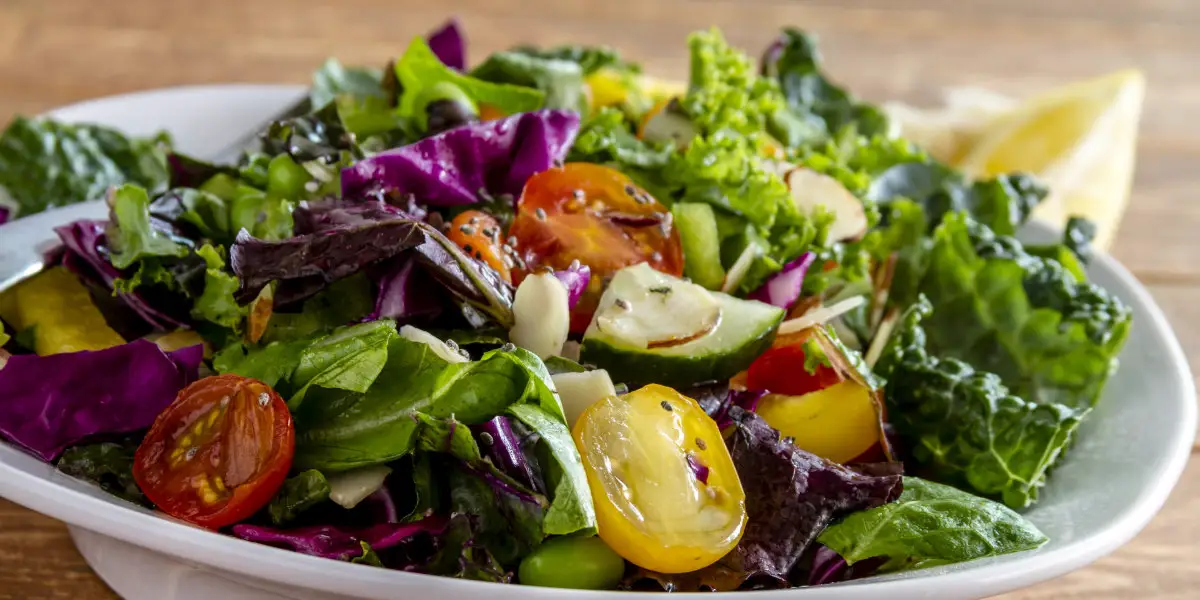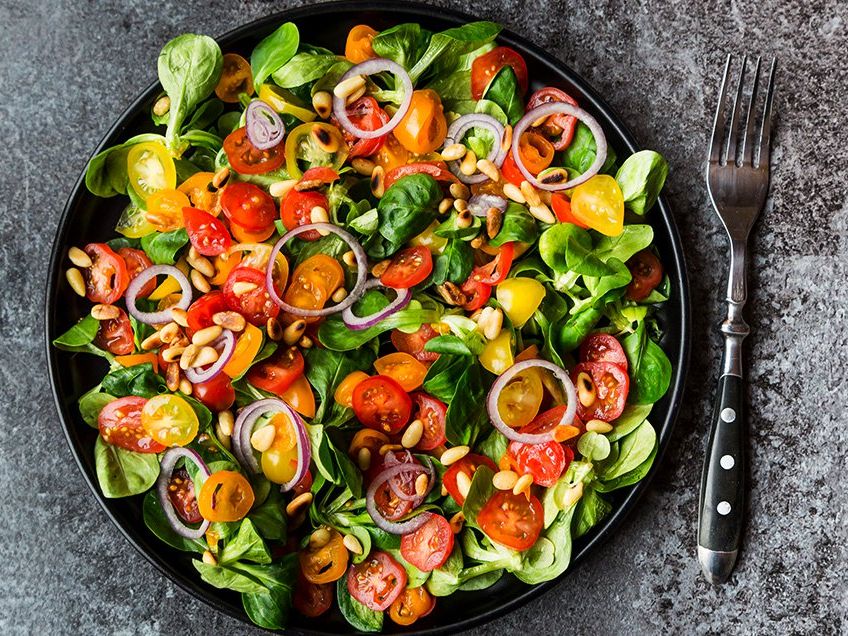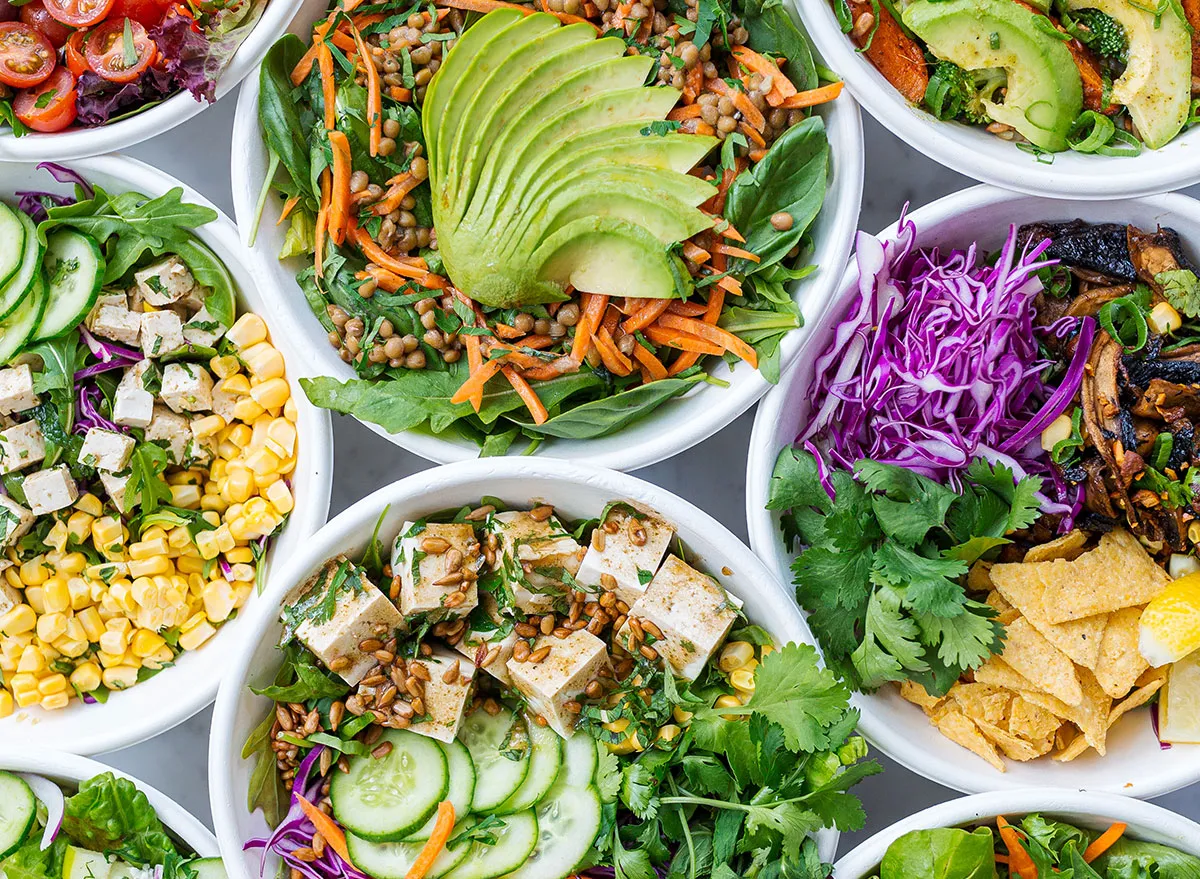When it comes to eating healthy, salad automatically pops up as one of the first foods in that category. filled with leafy greens and nutrient-packed veggies, you can get many of your daily requirements in just by eating a bowl of salad. Salads can be packed with a diverse array of colorful and filling ingredients like chickpeas, chicken, salmon, tofu and quinoa.
With a well-balanced salad, you’ll feel truly satisfied, and it’s doing wonders for your brain and body. But just what happens to your body when you eat a salad every day? Read on to find out.
1. You might have lower blood pressure :
Plant consumption is linked to lower blood pressure, and those who see a doctor for high blood pressure are often told by dietitians to increase veggie consumption and reduce meat intake. Just try to minimize sodium in the salad, which means less lunch meat and processed ingredients and more olive-based dressings, berries, unsalted seeds and nuts.

2. Muscle performance will improve :
Salad powers up our muscles in a way that carbs can’t. Nutrients in greens and spinach help build strong bones. They also help mitochondria perform. Mitochondria are tiny structures within our cells that produce energy and power our muscles, making your workout a whole lot better. If you want to add more muscle mass, you can consider adding ingredients like salmon, eggs, shrimp, tofu, chickpeas and tuna to your salad.
3. Better digestion :
Salad ingredients are often high in fiber, and foods like cilantro, broccoli, carrots, and radishes contain healthy antioxidants, which can help balance out gut toxins. Salads can provide you were vitamins that fuel digestive cells especially ones with probiotic ingredients such as aged cheese, apple cider vinegar or pickled ingredients. It can also help your bowel movements be more regular.

4. It may make you live longer :
Since no single veggie or fruit can provide all the nutrients our body needs, a salad mixing a variety of produce can be a fantastic solution. If you want to extend the longevity of your life, a variety of studies suggest that veggies can work to prevent premature death and can also reduce the risks of heart disease, cancer and cardiovascular disease.



